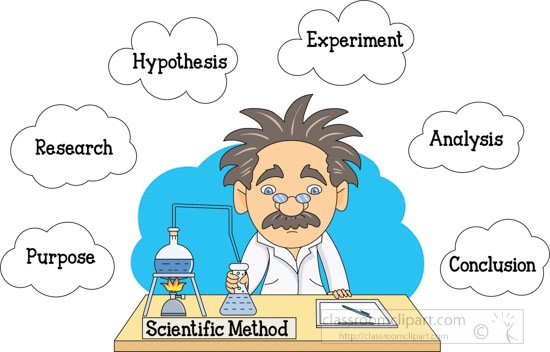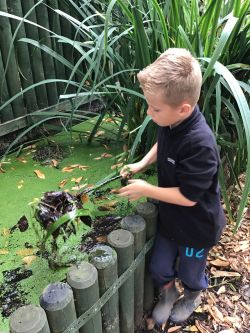Science
“The important thing is not to stop questioning. Curiosity has its own reason for existence.”
Albert Einstein (LIFE magazine 1955)
Curriculum Intent
 Science is the stimulus through which children can learn about themselves and the world around them. At Dorridge Primary School, our aim is to nurture the enquiring mind and give the children opportunities to develop their own powers of reasoning. We concentrate on developing skills, attitudes and concepts through children working in small groups. Our teaching is posed as problems to solve rather than theoretical knowledge. The experiences we present to the children emphasise relevance to their age and previous experience and are marked by balance, continuity, progression and consistency, avoiding repetition. The school has a flourishing Environmental Studies area where activities are planned to support and extend the children’s understanding of their environment.
Science is the stimulus through which children can learn about themselves and the world around them. At Dorridge Primary School, our aim is to nurture the enquiring mind and give the children opportunities to develop their own powers of reasoning. We concentrate on developing skills, attitudes and concepts through children working in small groups. Our teaching is posed as problems to solve rather than theoretical knowledge. The experiences we present to the children emphasise relevance to their age and previous experience and are marked by balance, continuity, progression and consistency, avoiding repetition. The school has a flourishing Environmental Studies area where activities are planned to support and extend the children’s understanding of their environment.
 Emphasis is placed on the importance of practical activity and the scientific process, in line with the National Curriculum. Children will work both individually and in small groups, taking full advantage of an extensive range of resources, and thus will be encouraged to understand the importance of systematic enquiry, science in everyday life, scientific ideas and their communication and health and safety. They will be given the opportunity to plan experimental work and to obtain and consider evidence so that they can develop an understanding of: life processes; humans as organisms; green plants as organisms; variation and classification; living things in their environment; grouping and classifying materials; changing materials; separating mixtures of materials; electricity; forces and motion; light and sound; the Earth and beyond.
Emphasis is placed on the importance of practical activity and the scientific process, in line with the National Curriculum. Children will work both individually and in small groups, taking full advantage of an extensive range of resources, and thus will be encouraged to understand the importance of systematic enquiry, science in everyday life, scientific ideas and their communication and health and safety. They will be given the opportunity to plan experimental work and to obtain and consider evidence so that they can develop an understanding of: life processes; humans as organisms; green plants as organisms; variation and classification; living things in their environment; grouping and classifying materials; changing materials; separating mixtures of materials; electricity; forces and motion; light and sound; the Earth and beyond.
Curriculum Implementation
EYFS
Knowledge & Understanding of the World is the focus for scientific enquiry in EYFS. Through curiosity and interest, pupils will explore the world around them. Whilst investigating, they will have the opportunities to notice similarities and differences and observe, identify and name key features and properties.
Key Stage 1 and 2
We follow the Engaging Science Scheme to support the teaching of Science at Key Stage 1 and 2. The lessons are carefully structured to support the progression of key scientific skills and provide every child with the excitement, interest, and opportunity to explore and investigate.
Science Curriculum Progression document
The principal focus of science teaching in Key Stage 1 is to enable pupils to experience and observe phenomena, looking more closely at the natural and humanly constructed world around them. They will be encouraged to be curious and ask questions about what they notice.
Lower Key Stage 2
The principal focus of science teaching in lower Key Stage 2 is to enable pupils to broaden their scientific view of the world around them. They will be given the opportunities to do this through exploring, talking about, testing, and developing ideas about everyday phenomena and the relationships between living things and familiar environments, and by beginning to develop their ideas about functions, relationships and interactions.
Upper Key Stage 2
The principal focus of science teaching in upper Key Stage 2 is to enable pupils to develop a deeper understanding of a wide range of scientific ideas. By exploring and talking about their ideas; asking their own questions about scientific phenomena; and analysing functions, relationships and interactions more systematically, they will be able to acquire such skills.
Science Week

As a school we participate in British Science Week each year as a way to further enhance the teaching and learning of Science. Science Week involves a range of hands on scientific skills and investigations to enthuse and inspire children.
Science Week Timetable of Events 2022
Science Week Timetable of Events 2023
Citizen Science
At Dorridge, we are dedicated to developing children’s understanding of environmental issue around the globe, and the impact that humans have on the environment, both good and bad. During Science Week, we take part in citizen science projects such as the ‘Spotting Spider Monkeys’ project which was set up to help monitor the population of spider monkeys through the use of drone footage and images. Classes across school helped the project by looking through the images and counting the numbers of spider monkeys found in each picture or video clip. In other years, we have taken part in projects to reduce plastic in the ocean and we have helped to monitor the activity of penguin colonies in Antarctica and the Southern Ocean. This year we are also running a whole school Biodiversity Project. Each year group will be working to increase the amount of flowering plants that are grown on our school site to support our pollinator populations. The children will be making observations, throughout the year, to monitor numbers of flowering plants and insect populations in their allotted area to see the positive impact that we have had on our local environment.
Outdoor Learning
At Dorridge Primary School, we are lucky enough to have access to a large outdoor space to explore and provide hands on field experiences. We have a wonderful KS1 garden, run by our fantastic Eco Council Leader – Mrs Brookson. There is a small allotment, providing children with first-hand experience of growing their own vegetables, some of which are even used in the school kitchen as part of the children’s lunches. It also provides opportunities to explore microhabitats, such as compost heaps, mud pools and logs, and the animals that are found within them.
At KS2, children can use the Jubilee Garden to explore a range of habitats, such as the pond dipping area and minibeast hotels. There is also a dedicated Forest Schools area that gives children an opportunity to understand, appreciate and care for the natural environment. It provides a real-world context in which to develop working scientifically skills and there is plenty of scope for individual and small-group exploration.
Other Useful Links
The following sites will support and enhance what we do in school. Please note that, as these are external sites, it is possible that they may change or disappear without warning!
BBC Bitesize homepage interactive science games for KS2
BBC live lessons (https://www.bbc.co.uk/teach/live-lessons) Great science videos and supporting resources
BrainPOP Science (https://www.brainpop.com/science/) educational animated videos and lessons covering different science topics
Science Kids (https://www.sciencekids.co.nz/) fun science and technology for kids
Engineering Interact interactive Science and Engineering for 9-11 year olds
Kids Health how to keep healthy and finding out about how your body works
Manchester Children's University interactive Science activites for KS2
The Garden how to identify different organisms in the garden
Crickweb Key Stage 1 Science and Key Stage 2
Planet Science try out some Science at home.
